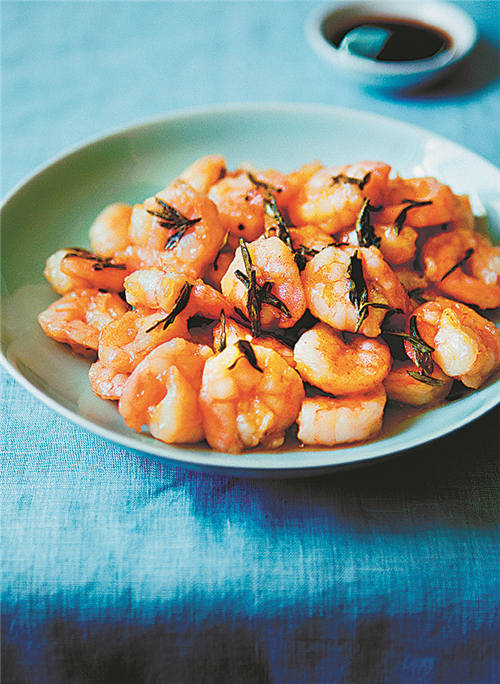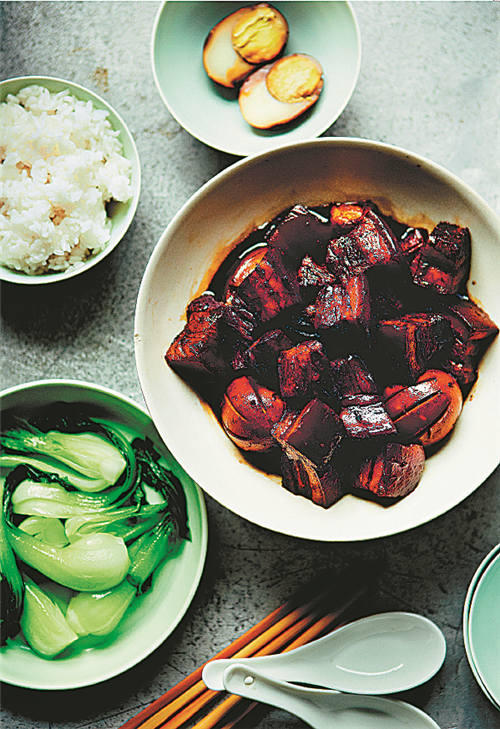

The decisive moment was in 2008 when she went to Longjing Caotang, or the Dragon Well Manor, a restaurant in Hangzhou, Zhejiang province, where the whole approach to ingredients, seasoning, cooking and tradition was so moving and impressive that, at that moment, she decided to write a book about the region, she says.
By then, she had published three books about Sichuan and Hunan cuisine, both of which are famous for being stimulatingly spicy. But in Hangzhou and Yangzhou, she encountered food that was calm, peaceful, soothing and delicate.
To better understand the context of the food in Jiangnan, Dunlop started reading Chinese classics like The Dream of the Red Chamber which contained detailed descriptions of dishes eaten by literati and aristocratic families in ancient China. Her love for food also drove her to museums to see artifacts related to the history of food, and also mansions and gardens in Jiangsu's Suzhou and Yangzhou.
"Jiangnan food is connected with Chinese literature. Lots of dishes have quite literary names or stories behind them," she says.
As a result, when introducing food in the book, besides tracing the history of the dishes, she also tells stories like how Su Dongpo, a great poet during the Song Dynasty (960-1279), invented Dongpo Pork in the 11th century, or quotes his poem that praises delicious sea bass.
The countryside was another destination for her to get a sense of the landscape, atmosphere, culture and people of the region.
"When I write a cookbook, I don't want to just rush in, collect material and write a cookbook. I want to feel a sense of connection with the place and make friends there to have a real affection for it, and that takes time. You can't do that instantly."
After collecting all the recipes, Dunlop tested them at her home in London to make sure they worked for people in the West.
